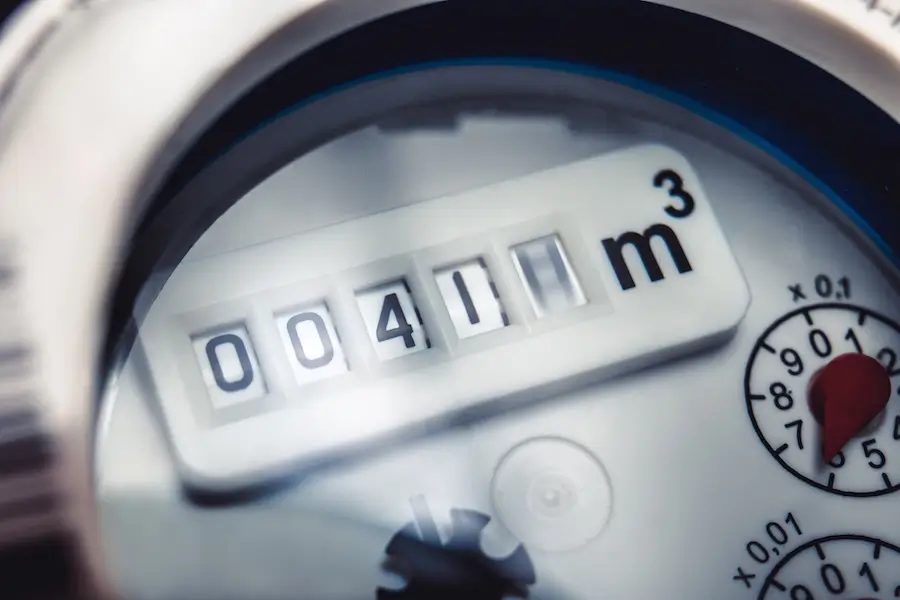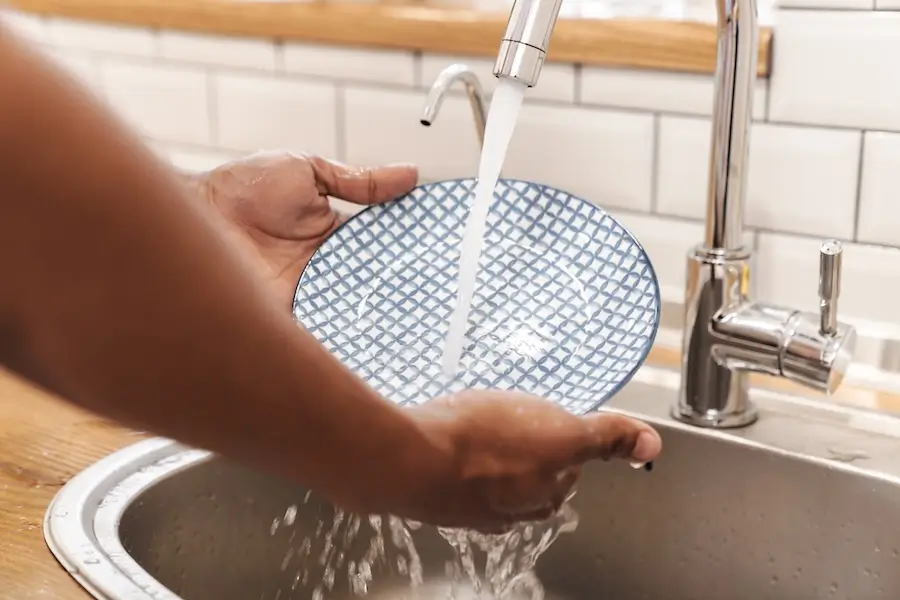
Mr. Rooter Plumbing® shares some of the common reasons for high water bills.
|
We are fortunate in that the vast majority of Canadians have access to fresh, clean drinking water. Whether you live in a town, city, or rural area, you can turn on your faucet to pour a glass of water and run appliances like dishwashers and washing machines.
Such convenience comes at a cost, and you’ve likely asked yourself, ‘Why are my water bills so high?’ Keep reading to learn more about water rates in Canada, what contributes to your water bill, and what you can expect to pay for water.
What Are Water Rates?
A water rate, also known as a water tariff, is money we pay public utility providers for water piped through their network. The rate or tariff does not necessarily cover the costs of the water but recovers the money spent on water treatment, storage, and transport.
Who pays water rates depends on the municipality and its billing practices. Property owners typically cover the costs first and foremost, with municipal water utilities billing customers directly. The owner may pass those costs on to tenants if a property is rented.
In many cities, such as Ontario, all utility bills are the property owner’s responsibility. Therefore, if a tenant doesn’t pay a water bill as agreed in their property agreement, the responsibility still falls on the landlord.
Different cities apply different water rate structures for commercial and residential property owners:
Flat Rate System
A flat-rate system is a water rate structure in which customers pay a fixed amount for water, regardless of their usage. In many cases, the water bill is determined by lot size, room numbers, and residence type, rather than metered water use. Several provinces and municipalities rely on this structure, including Calgary and Toronto.
Volumetric Pricing
Volumetric pricing means customers are charged for water based on how much they use. A water meter measures the volume of water used by a household or business and calculates the cost based on a unit rate, such as per cubic meter (m³).
Charging for water use encourages customers to preserve water and be more aware of their usage. Some municipalities even opt for a progressive rate structure or tier system, where the per-unit rate for water increases as consumption increases. Montreal, for example, implements such a structure for non-residential customers.
How Much for a Water Bill Per Month?
Knowing your monthly water costs can be helpful when planning your household budget. Your city’s fee structure plays a vital role in water rates.
For example, from January 2025, residential water consumers in Toronto paid $4.6872/m³ or $0.02130836 / gallon up to 5,000 m³ or 1,099,850 gal. Businesses participating in the Industrial Water Rate Program pay $3.2809/m³ or $0.01491522 / gallon for usage over those same limits.
Toronto also charges water fees, such as:
- Annual seasonal meter activation fees
- Fire hydrant flow tests
- Water meter accuracy tests
- Turn-off/turn-on fees
[Source: City of Toronto]
In the city of Calgary, there are two water rate types for residential customers: metered and flat rate. In 2025, customers were paying an average of $114.89 per month to cover the costs of providing water, wastewater, and stormwater services and performing maintenance and upgrades.
[Source: City of Calgary]
You can learn more about your town or city’s monthly average water bill by contacting your local municipality.
Why Does My Water Bill Keep Going Up?
Seeing your water bill rising year after year can be disheartening, especially if you don’t believe your usage has changed. However, many factors outside your control can contribute to water bill increases, and they don’t necessarily relate to increased consumption.
Location and Province
Where you live is one of the primary factors that contribute to your water bill. Being more rural, for example, means the water requires more routing to get to your location. Rates also vary from one province to the next.
Water Infrastructure Age
You can expect ongoing water bill increases if your town or city uses outdated infrastructure. The older the pipes are, the more frequently they need to be repaired. These costs are typically passed on to residents through their water bills.
Seasonal Demand
Water is more in demand at some times of the year than others. As a result, some municipalities implement tiered pricing structures. This means that residents can pay more for water during periods of peak demand, such as summer. Such pricing structures are designed to encourage residents to conserve water.
Environmental Concerns
If you live somewhere with precious ecosystems like lakes, aquifers, and rivers, your water rates can reflect the cost of protecting them.
Government Incentives, Subsidies, and Grants
If government grants and subsidies are available in your area, you may have access to lower water rates. Many subsidies are offered due to economic factors, government changes, and policy fees.
Other Causes of High Water Bills
While many factors contributing to a high water bill are beyond your control, some are not. Your water bill might be more than you’re expecting for any of the following reasons:
A Change in the Household
Guests, additional family members, or new tenants can explain why your water bill is higher than average. Having more people showering, doing their laundry, and washing their dishes can make more of a difference than you think.

A New or Failing Appliance
If you have installed a new appliance or have an old, inefficient, or failing appliance, explore these as a possible cause. Water-cooled air conditioning units, hot water tanks, lawn sprinkler systems, and even dishwashers can contribute to water usage changes. Contact your local trusted plumber for advice if you think your water-using appliance is to blame.
More Time Spent At Home
Are you working from home? Are the kids home on spring break? Spending more time in your residence can result in increased water usage.
A Plumbing Leak
Plumbing leaks aren’t always immediately apparent. For some people, a higher-than-average water bill can be the first sign they notice.
If you suspect a plumbing leak, take these actions:
- Perform a visual inspection – look for damp walls and ceilings, water stains, mold growth, and foundation cracks.
- Listen for sounds like dripping, running water, hissing, and gurgling.
- Inspect your water meter – turn off all water-using appliances and read the meter. If the reading changes, there may be a leak.
- Contact a plumber to provide a water leak detection service.
Book a Plumbing Inspection with Mr. Rooter Plumbing®
If you’ve received an unusually high water bill and want to confirm or rule out plumbing leaks, contact the friendly team at Mr. Rooter Plumbing®. Our licensed and insured plumbing professionals provide a non-invasive plumbing inspection service to identify any problematic plumbing contributing to your higher-than-average water bill. Reach out to book your plumbing inspection today.

